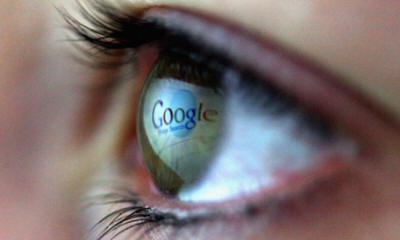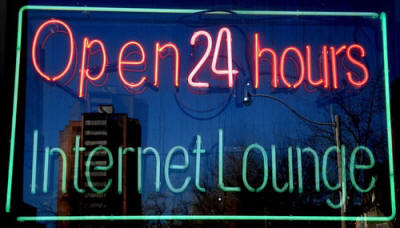|
03 September 2010 from IMVA Website
Today in the studies that are going around people make a distinction between types of Internet users.
Not everyone gets the same benefit, the
same happiness from their Internet use and the key here is intent.
How we approach the Internet and what we intend for the time we
invest in the virtual world will determine what we get back from it.
Overall, the study found that access to the Internet leads people to feel better about their lives.
A central aspect of the Internet that is amplifying our consciousness is the ability it gives us to travel around the globe and touch people. We can create and communicate with a network of close friends or colleagues who we get closer to the more we communicate with them.
There is a mind-expanding and
heart-expanding effect as we begin to identify with these other
beings that simultaneously exist and communicate with us.
We reach out with the speed of
consciousness, Interesting when Francis Cairncross wrote about the Death of Distance.
Though he was fascinated about the
Internet’s economic force shaping influence on the future he could
not imagine its potential to actually amplify certain aspects of
human consciousness. What is intuition anyway but the perceptual
ability to cut through both time and space - the perceptual capacity
and ability to jump through complex labyrinths of intellectual and
conceptual sophistry to simple truth?
How? It does this in two ways.
Without the distraction of visual, auditory, and general physical cues, we are being forced to stretch other more penetrating potentials of perception. This runs contrary to the entire lockstep thinking about Internet use and its future.
Almost all are complaining about the
lack of visual cues like that was some kind of devastating handicap
and that face-to-face communication was the end all and be all.
A typical modern person will listen to a
few songs on their iPod, then tap out quick e-mails on their iPhone
in between working on their laptop or using their new iPad.
Sarah Churchwell, academic and critic, says that the Internet is changing our habits of thinking, which isn’t the same thing as changing our brains.
The brain is like any other muscle - if
you don’t stretch it, it gets both stiff and flabby. But if you
exercise it regularly, and cross-train, your brain will be flexible,
quick, strong and versatile. In one sense, the internet is analogous
to a weight-training machine for the brain.
Ian Goodyer, a professor of psychiatry at the University of Cambridge, says,
For humans the Internet offers a new space that can connect us like normal space connects all things. This is a new space in which we can live, socialize, do business, love, communicate, build communities, towns and cities, learn, and even get married. But beyond all this lies a new potential, something unseen, unknown even to the most savvy Internet users.
Cyber space can be used as a powerful
instrument for healing, for spiritual growth, for mental and
emotional expansion. With the Internet, when used properly, we can
actually expand our awareness as it amplifies certain aspects of our
consciousness.
We all have an inner consciousness that is independent of the physical location of the body. We can develop this self now more than ever before and in reality we are needing that self.
As John Suler, an Internet psychologist stated,
The basis of true thinking is intuition.
Researchers from the Trajectory Partnership, a U.K.-based think tank that carried out the study on behalf of the BCS, analyzed data from 35,000 people across the globe who took part in the World Values Survey from 2005 to 2007.
Looking at a number of social and
economic factors that determine happiness - including gender, age,
income and education - the survey showed that Internet use empowers
people by increasing their feelings of security, personal freedom
and influence.
GlobeScan Chairman Doug Miller commented:
The web is our window to the world.
With it we have instant access to the largest library in the solar system. It is just a wonderful feeling to be able to get any information any time without even having to leave our own homes. Critical thinking skills have always been important to the process of searching for and using information from media such as books, journal articles, radio broadcasts, television reports, and so forth.
With the advent of the Internet and World Wide Web, these skills have become even more crucial. One needs an innate ability (intuition combined with astute intellect) to be able to discern truth and valuable information from much of the trash that is put up on the net.
The garbage on the net though in no way
undermines the backbone of valuable information on the Internet.
Dan Rollman and others are trying to get people to observe a Sabbath Manifesto, an interesting initiative with ten core principles meant to help people slow down their lives once a week.
The first principle is to “Avoid Technology.”
(Other principles: Connect with loved ones; nurture your health; get outside; avoid commerce; light candles; drink wine; eat bread; find silence; give back.)
|




